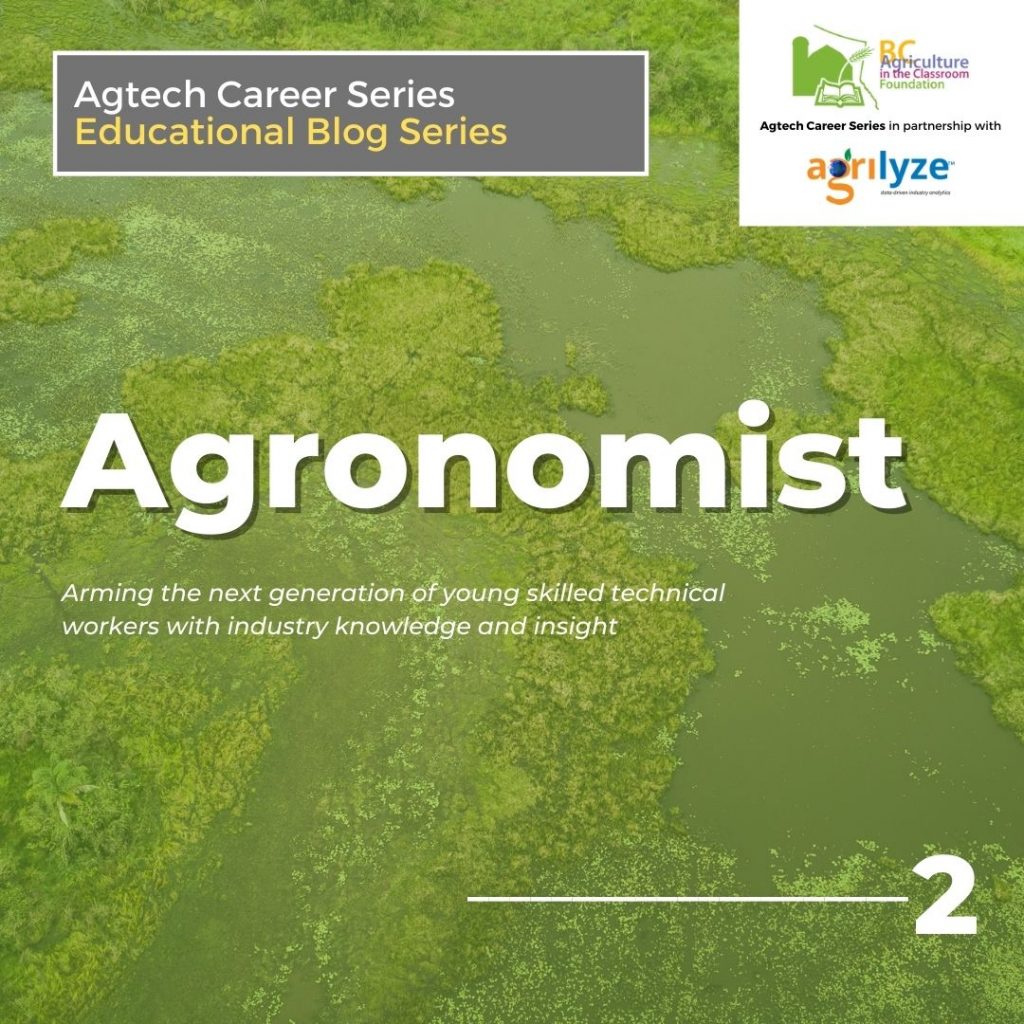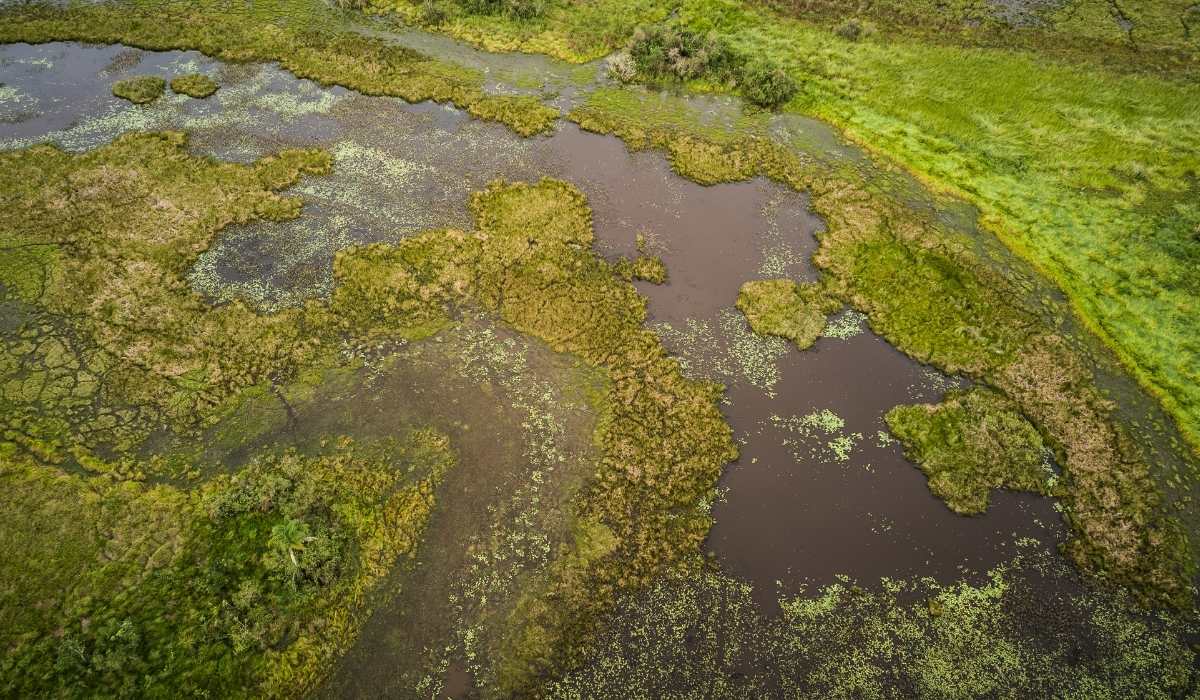Agtech Career Series: Career 2 – Agonomist
The field of agronomy is focused on studying soil management and crop development. It is said that it looks at agriculture from an integrated, holistic lens as agronomists aim to understand the what, when, how and why of farming ecologies. It is an application of science and technology that blends several different fields (biology, ecology, economics, soil and water science, genetics and pest management, to name a few).
While often working in many different environments, agronomists are considered scientists with various skills that can be used to improve farm and crop quality. They may perform agricultural experiments in labs, or perhaps they observe plant or animal life out in the fields, either on a farm or in greenhouses. A lot of time, their work involves travel to different agricultural-related sites like food processing mills, for example.
By definition, an agronomist is a go-between for farmers and researchers and is sometimes thought of as ‘crop doctors’ because they look after the health and well-being of crops used for fuel, food production, and land reclamation. They are well-trained in caring for, studying and researching crops. So, they work in the field of agriculture, using their knowledge to make recommendations to farmers. Their experience is gathered by reviewing research, and often suggestions are made to farmers around new scientific developments that will help support the growing operation. They also see that recent developments in crop varieties, crop rotation, tillage systems, and disease and pest control are adequately implemented on the farm.
As a whole, agronomy integrates many different crop production disciplines, ranging from harvesting to soil management to entomology, which is the study of insects. This necessary venture helps us to understand agriculture, evolution, ecology and biodiversity.
There is a great demand for agronomists in the agriculture industry today as producing profitable crops is becoming more complex every year. There are so many things to consider – machinery, equipment, technology – that farmers require the extra support, and a good agronomist can be the one to provide that.
Agronomists often specialize in a particular area of interest, including crop management, sustainable development, soil and water conservation and research.
Specific duties will vary, but most are expected to:
- Conduct experiments with crops in a lab
- Engage with farmers to discuss potential farm improvements
- Collaborate with researchers to come up with ideas for plant development
- Solve problems related to planting, harvesting, storage and distribution
- Find ways to protect plants from harsh weather or climate
- Travel around the country to visit farms and meet with operators
- Present research at conferences or publish it in journals
- Develop sustainable and environmentally conscious farming practices
- Conserve and recycle water and other resources
Some skills required to become an agronomist:
- Self-motivated
- Detail-oriented
- Analytical
- Excellent listening and communication skills
- Problem-solving skills
In addition, agronomists should be physically able to travel as they will need to examine farms in various environments and climates. To be physically fit in the sense of bending, kneeling and carrying light loads. The top skills an agronomist should have are communication, collaboration and critical thinking.
For the most part, an agronomist will spend their time between a lab and the field. They will work with a lot of scientific tools that will be used for experiments. For this reason, they often need to wear protective gear like gloves and eyewear.
They may spend a lot of time in the office, doing paperwork or analyzing data for reporting. They will also spend most of their day communicating on the phone and in meetings with clients. While in the field, they will inspect and test crops and soils while problem-solving with the producers. They will also be putting together presentations for farmers and agricultural businesses.
Responsibilities of an agronomist:
- Apply knowledge to make recommendations for more efficient crop production
- Manage field trials, irrigation practices and plant physiology
- Gather, compile, analyze and interpret test results and prepare progress reports
- Document field evaluation, provide agronomic training to staff and assist with budgeting/cost monitoring
- Stay up to date on crop nutrition and protection technology
To pursue an agronomy career, you will need the following high school courses (agricultural education, biology, mathematics, chemistry and computer science) and a bachelor’s/master’s degree in agronomy or a related field. It is also a good idea that you obtain your Certified Crop Advisor (CCA) certification.
How Agrilyze Can Help
- Have easy access to best practices, legislation, crop information in a single platform
- Use digital tools to capture data in the field and then compare it to historical data to help better manage farms and crops
- Compare multiple data sets to get insights into the crop based on weather, soil tests
- Build reports and track data for audits
- Keep track of products applied to crops and track outcomes
- Access database of information related to the farm
- Leverage data collected over time to analyze optimal steps for crops
View Agtech Career 2 – Agronomist Info Sheet



